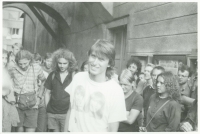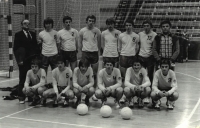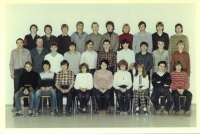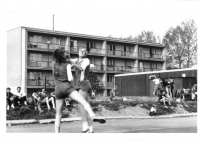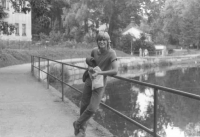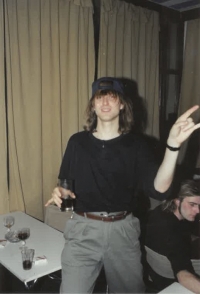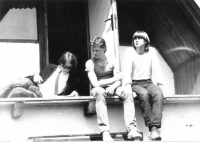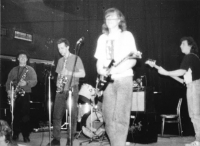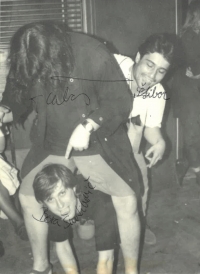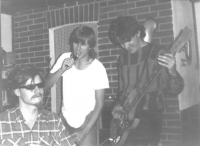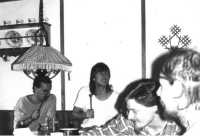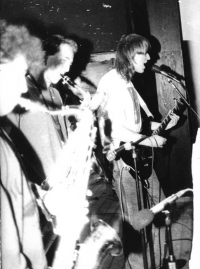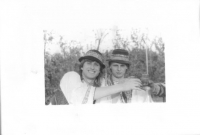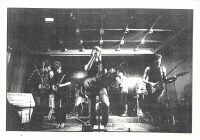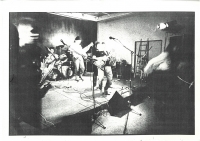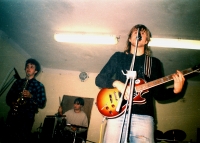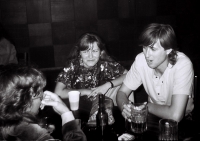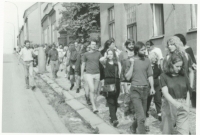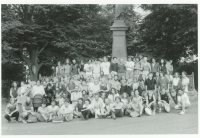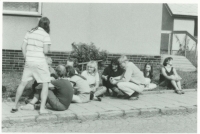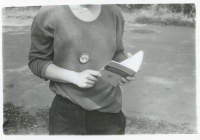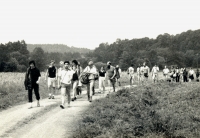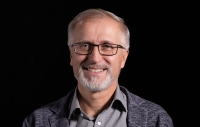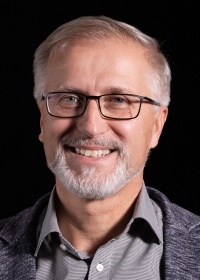Forced by wolves to protect himself
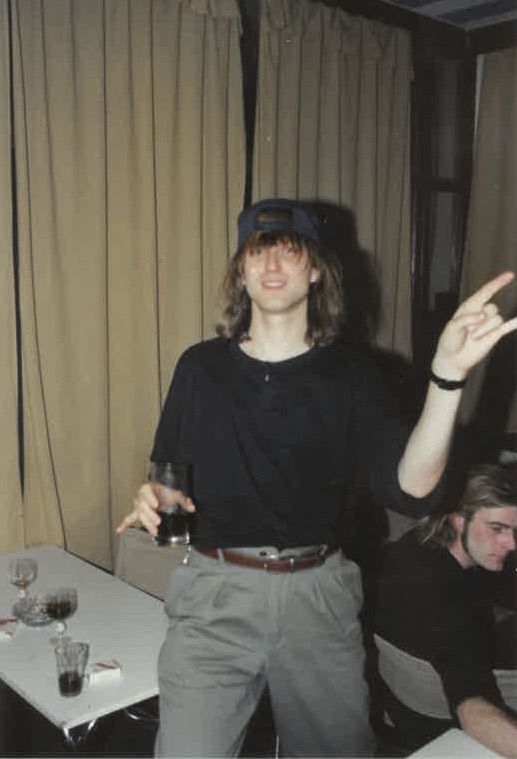
Download image
Pavel Šimon was born on December 16, 1964 in Benešov and spent his childhood years in Týnec nad Sázavou in the area of Sázava river. However, because of his father’s job, the family moved to Liberec in 1973, where Pavel played in Dukla Liberec volleyball team. In January 1982, another moving happened, this time to Havlíčkův Brod, and Pavel Šimon began his studies at the Secondary Technical School of Mechanical Engineering in Jihlava. After graduating, he went to Prague and became an employee of ČKD company, but he left during his probationary period. He returned to Havlíčkův Brod and joined the Czechoslovak stone industry as a designer and together with Josef Hrdý they set up the music band Bio 29. Since September 1, 1987 he became a program designer of the Youth Club in Havlíčkův Brod and a year later he was one of the dramaturgists of the Folková Lipnice festival, where in September 1988 after 19 years Václav Havel appeared before the public. In November 1988, the employment of SS SSM and Pavel Simon was terminated. He became one of the founders of the Havlíček Youth Initiative. On March 7, 1989, a file for the person under the investigation was created for him by the State Security in Havlíčkův Brod. He was arrested during the protests in Prague on October 28, 1989 and then imprisoned for 48 hours in Pankrac prison. After the events in November, he joined the local Havlíčkův Brod Board for the investigation of communist crimes. He currently lives with his family in Prague and performs in the music band Red Nose.
